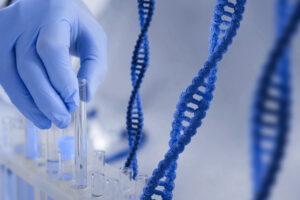Men account for around half of infertility issues. Male fertility tests can help diagnose what’s preventing pregnancy: from varicoceles to problems with production and motility to issues pertaining to shape and structure of sperm.
While fertility specialists typically recommend seeking professional assistance after one or two years (or six months, in cases involving men over 35) of trying for conception, some tests can also be completed at home.
Semen Analysis
An semen analysis involves collecting and testing a sample of the thick fluid released from your penis during sexual activity (orgasm). Semen contains sperm which contain genetic material necessary for creating babies; its examination can reveal key information about your fertility potential such as number and quality of sperm produced.
Semen analysis helps doctors diagnose fertility problems in their patients and devise plans to overcome them. A typical semen analysis looks at three primary areas: Sperm count, motility and morphology. Sperm count measures how many active sperm are present within a sample (normal range is 40 million to 300 million per milliliter of semen); motility refers to how often moving sperm are moving forward toward fertilising eggs; abnormally low sperm counts could signal obstruction or other issues with male reproductive system functioning; while sperm morphology tests assess shapes head of individual sperm so as to predict health concerns associated with male reproductive issues or symptoms relating to health concerns associated with health conditions that arise due to potential obstruction or obstruction within male reproductive system dysfunctions.
Sperm Count
Under a microscope, a doctor will review a sample of your semen. This test evaluates aspects such as sperm count (sperm concentration), shape, movement and pH level as well as how quickly it turns to liquid form. Furthermore, this can reveal whether your seminal vesicles and prostate are functioning normally.
Low sperm count may be an early indicator of fertility issues. While lifestyle or medication might be to blame, it’s crucial that we identify what’s causing our issues so we can take appropriate measures to correct them.
Sperm counts provide only limited insight into fertility health; your doctor may order additional tests to provide more details on its status. These could include vital staining, culture and bloodwork to look for antibodies attacking sperm; they might also suggest transrectal ultrasound or scrotal ultrasound scans to check for blockages in tubes that carry semen as well as varicocele or other medical conditions that might arise from them.
Sperm Motility
Sperm must have the ability to navigate their way through a female reproductive tract in order to fertilize eggs successfully, which requires their motility. Motility can be measured using an A-D scale; with A indicating fast moving sperm in an unison motion; those that vibrate or move zigzag would still count as motile but non-progressive; any that stop moving altogether would be considered immotile.
Sperm motility can be affected by various factors, including age, medications, diet, exercise and genetics. Low motility rates may result in fertility issues.
Sperm that aren’t swimming correctly can make getting pregnant difficult or impossible for couples, which necessitates testing to understand why this is happening and take steps to address it. Sperm tests can also reveal other problems which may impact fertility, such as pH (acidity), vital staining, bloodwork or testing for white blood cells (leukocytes). By providing physicians with more options to assess and treat male patients individually for fertility issues.
Sperm Morphology
Every man’s semen contains various percentages of abnormally shaped sperm. Normal sperm are oval in shape with slender midpiece and long tail; when there is a higher proportion of abnormal shapes it may make natural conception more challenging.
Kruger strict morphology analysis evaluates samples of sperm for their shape, checking that head, midpiece and tail appear normal. This testing procedure is more stringent than WHO guidelines which only require 14% normal sperm to pass inspection.
An abundance of abnormally shaped sperm can impede their ability to migrate up the fallopian tube and fertilize an egg, but most scientists agree that, provided sperm counts and motility remain healthy, pregnancy should still be possible even with low sperm morphology readings.
If your semen analysis reveals a high percentage of abnormal sperm, we may recommend further testing to evaluate hormone levels. This may provide valuable clues as to what may be causing it and enable us to create an appropriate treatment plan.
Genetic Testing
Genetic testing for male fertility issues involves discovering any known or suspected genetic abnormalities as potential sources. Such testing can detect conditions like Y chromosome microdeletions or specific gene mutations that could contribute to aneuploidy (an abnormal number of chromosomes) or production issues that impede male reproduction.
To undergo these tests, men can either bring in their semen from home or have it collected at the doctor’s office through masturbation and have it examined under a microscope to ascertain its number and shape.
Dependent upon the test results, additional laboratory work may be conducted to make an accurate diagnosis. This could involve staining to locate any non-moving living sperm or performing blood tests to measure hormone levels; more advanced forms of testing such as karyotyping or next generation sequencing (NGS) tests could reveal specific forms of genetic anomaly affecting male fertility.





